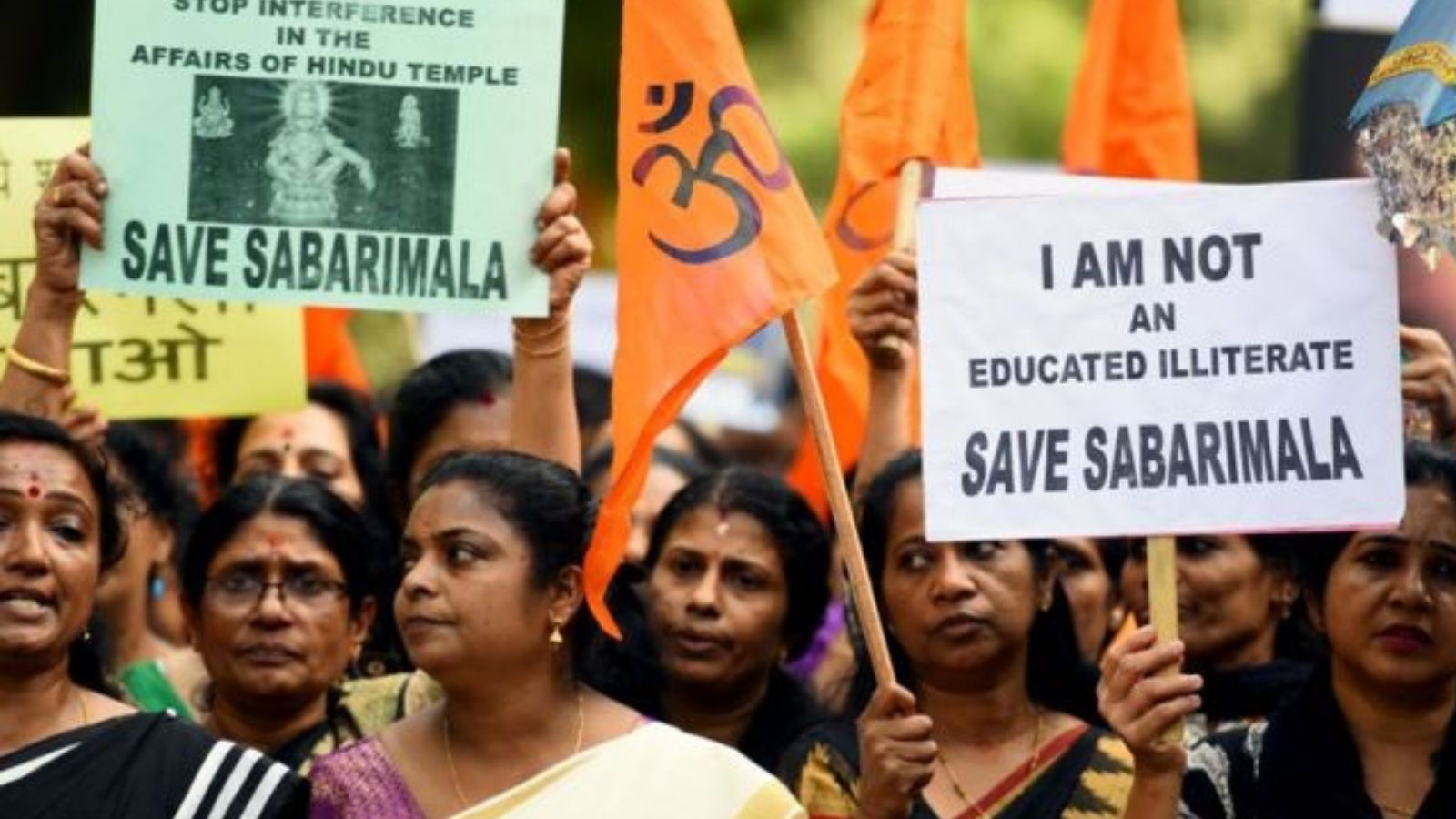By Shyam Krishna Kumar, Vision India Foundation Fellow
This article was published in the BBC Website
The source of the image is Vision India Foundation
VIEWPOINT: THE ‘FEMINIST’ RULING ANGERING INDIAN WOMEN
A recent Supreme Court ruling, which has been hailed as a feminist victory, has instead angered the Indian women it was meant to empower, says commentator Shyam Krishnakumar.
At the Sabarimala temple in the southern Indian state of Kerala, a tense stand-off is underway between women who are determined to use a judicial verdict to enter the temple and large groups of devotees including women, making a last-ditch effort to preserve the integrity of their age-old traditions.
The issue began with a recent Supreme Court verdict allowing the entry of women between the ages of 10 and 50, which was prohibited by the temple’s traditions.
Why has a seemingly feminist verdict caused a groundswell of protest including from the very subaltern women it was meant to empower?
Sabarimala commands a massive following cutting across caste, gender, and linguistic lines. Every year, millions of pilgrims including tribal communities, Muslims and Christians, undertake a rigorous 41-day fast and embark on a barefoot pilgrimage to the temple which located in the dense forests of the Western Ghats.
The temple is dedicated to the deity Ayappa in the form of an eternal celibate in penance. Therefore, traditionally only men, very young girls or post-menopausal women enter the temple.
Two weeks ago, a five-judge bench of India’s Supreme Court struck down the restriction on women of “menstruating ages”. The four male judges delivered a majority verdict on the grounds of gender discrimination and because it wasn’t an “essential practice” of the denomination.
Indu Malhotra, the only woman judge on the bench, disagreed with the majority verdict.
“Issues of deep religious sentiments should not be ordinarily interfered by the court… Notions of rationality cannot be invoked in matters of religion,” she said in her dissenting opinion.
Observing that women’s right to worship Lord Ayappa was not violated as there are a thousand other Ayappa temples without restrictions on women. Justice Malhotra added the court must not interfere unless approached by an aggrieved person from the denomination.
Objections notwithstanding, the verdict was widely celebrated as a progressive step by an activist judiciary in ensuring women’s “right of worship”.
Read more on BBC Website

